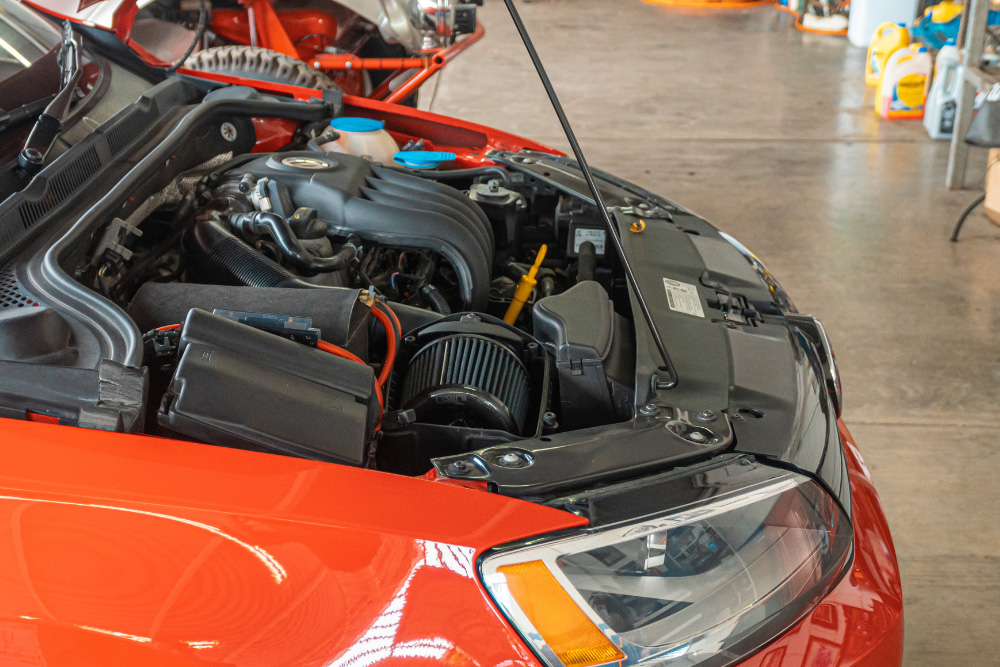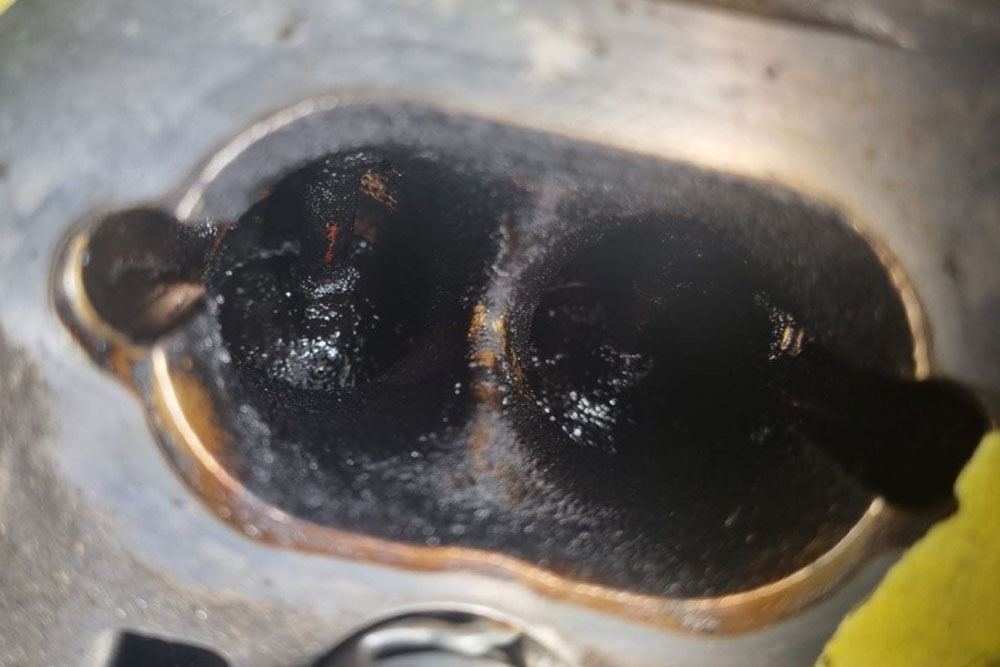Is your direct injection engine suffering from poor performance, excessive fuel consumption, rough idle, hard starting, or a persistent check engine light? If so, you could be dealing with the common issue of carbon buildup.
Direct injection engines are particularly susceptible to carbon deposits accumulating in the intake ports over time, which can lead to a host of problems including those just mentioned.
If your engine has excessive carbon buildup, carbon cleaning is well worth it, as it will restore your engine’s ability to operate correctly by clearing out the intake ports, giving you back peak performance and allowing the engine to run efficiently.

Why Would You Need a Carbon Clean?
Carbon buildup is a common issue for direct injection engines due to the fact that their injectors are placed directly into the cylinder, rather than in the intake ports.
This means that fuel that would help to clean out the intake ports like it does on old engines no longer happens, and as a result carbon deposits build up in the ports and around the top of the values, restricting airflow and impacting the engine’s ability to operate as it should.
Here is what it looks like inside the intake ports when there’s carbon buildup:

As a result, when carbon buildup gets bad enough, you will typically see the following signs:
Decreased Performance
If you’ve noticed a gradual decrease in engine power, sluggish acceleration, or a general lack of responsiveness, carbon build up may well be to blame.
Rough Idle and Start-Up Issues
Carbon buildup on intake valves can cause rough idling, engine misfires, and difficulty starting.
Persistent Check Engine Light
Carbon deposits can trigger the check engine light to illuminate. While other factors can also cause this, carbon buildup should be considered as a potential problem if the light persists and nothing else you do resolves the problem.
Reduced Fuel Efficiency
Carbon deposits restrict the amount of air coming in through the intake ports, disrupting the air-fuel mixture and resulting in increased fuel consumption. If you find your car using more fuel than it should be without any apparent reason, odds are carbon build up is to blame.
So, Is Carbon Cleaning Worth Doing?
Engine carbon cleaning is well worth doing if your engine has a significant buildup of carbon deposits causing disruptions to its performance.
By getting carbon cleaning done, you can expect the following benefits:
Improved Engine Performance
One of the primary reasons why engine carbon cleaning is worth it is because it restores engine performance.
By removing carbon deposits, the engine operates like it would have had from factory, giving you the power, acceleration and responsiveness that the car would have had when new.
Enhanced Fuel Efficiency
Carbon deposits interfere with proper fuel atomization and combustion, leading to increased fuel consumption.
With a cleaner engine, fuel is utilised more efficiently, resulting in better mileage and potential savings at the pump. Over time, the cost of carbon cleaning is likely to be offset by the fuel savings you achieve.
Prevention of Costly Repairs
Allowing carbon deposits to build up unchecked potentially leads to more severe engine issues down the line.
Carbon buildup affects critical engine components, leading to costly repairs or even engine failure given a long enough time frame.
By having engine carbon cleaning done when required, you can prevent the need for more expensive repairs in the future, saving you money and ensuring the longevity of your engine.
How Often Does Carbon Cleaning Need to Be Done?
Typically, engine carbon cleaning will need to be done every 100,000 KMs. This can depend on the type of driving the car is exposed to and the fuel used, but for most cars this is the sweet spot.
Get Your Engine Carbon Cleaned Today!
If you’re experiencing any of the symptoms mentioned in this post, contact us today to get your engine carbon cleaned and restore your car’s performance!

 Looking for Dual Clutch transmission components outside of New Zealand?
Looking for Dual Clutch transmission components outside of New Zealand?